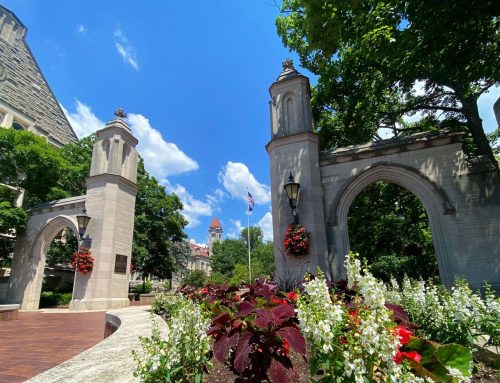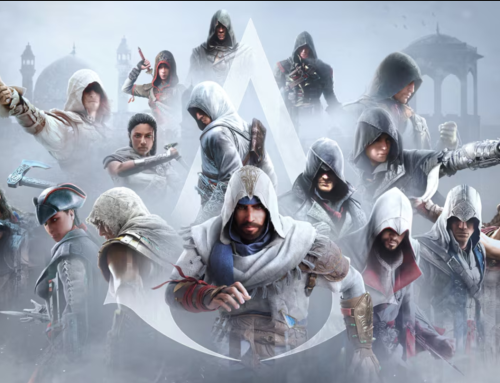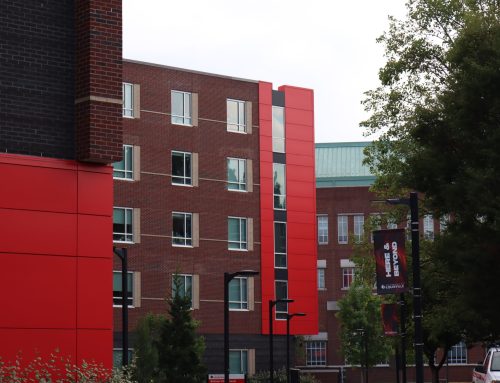By Madeline Tudor
In college, there’s a fine line between being resourceful and letting technology do your work for you.
Every day, students turn to Artificial Intelligence to write essays, summarize required readings and even draft emails.
It can seem like a natural evolution on the surface, humans using smarter tools to achieve smarter results. However, we must ask ourselves what we are losing by relying on generative AI instead of our own critical thinking skills in an academic setting.
These modern AI chatbots are powered by a “generative pre-trained transformer,” or GPT, a type of large language model that is trained on massive amounts of text. Once trained, GPTs can generate entirely new content, making them capable of everything from writing essays to holding conversations with its users.
As chatbots like ChatGPT became more advanced, students began experimenting with them in academic settings.
The proportion of students using generative AI tools has jumped from 53% in 2024 to 88% in 2025 according to a recent Digital Education Council Global AI Student Survey.
Perhaps using AI can reduce the stress of academics in college, but when has taking shortcuts ever been advisable for one’s success?
Despite students’ high rates of AI usage, many do not feel AI-ready. 58% of surveyed students reported that they didn’t feel that they had sufficient AI knowledge and skills. 48% of surveyed students didn’t feel prepared for an AI-enabled workplace.
There is also a notable growing digital divide in AI use, with students in STEM and health courses as well as socioeconomically advantaged students more likely to use AI in their coursework than others.
The idea that our future engineers, physicians and scientists might have relied on generated content to pass their courses is terrifying. A research study found that students using AI focused on a narrower set of ideas, resulting in more biased and superficial analyses.
Essentially, we have students training their brains to not explore as many viewpoints or think as deeply, and the dangers of mindsets like this entering the workforce cannot be understated.
At U of L, we do not have a universal policy on the use of AI for all students to follow. Instead, the university’s current approach is to empower professors to set their own AI guidelines.
As AI becomes more embedded in the college experience, I find that it’s becoming harder to determine where responsible use ends and academic overreliance begins.
Ekstrom Library recently created a “Generative AI for College Students” micro-course on Blackboard in partnership with the Writing Center and Digital Media Suite. It consists of six mini-lessons with the goal of enhancing students’ understanding of and engagement with generative AI in the classroom.
U of L even hosted Google Gemini on campus to showcase how its AI tools can support students’ learning, complete with free branded Owala water bottles.
Still, beneath this excitement, some professors agree that AI can erode the skills college is meant to build and create consequences beyond the classroom.
Sara Choate, Ph.D., a U of L professor of Public Health & Health Policy at the undergraduate level, shares my concerns about students’ increasing reliance on AI and how this can negatively impact learning.
She has adapted her courses to ensure students are still deeply engaged with material, placing more weight on class participation and policy work rather than having a multitude of graded assignments throughout the semester.
“You’re not going to pass my class doing AI,” Choate said.
This approach encourages students to foster their learning rather than only work to achieve an “A”.
She warned that overreliance on AI doesn’t just hinder academic growth but atrophies critical thinking and reduces the neural pathways related to this.
Choate also discussed how AI poses an existential threat to humanity.
Massive data centers are consuming large amounts of energy and water, amplifying environmental damage as short-term profit is prioritized over long-term planetary survival.
“We’re at a pivotal time in human history where we need to weigh the value of increased productivity with the environmental impact the technology harnessed to achieve this productivity creates,” Choate said, suggesting that AI’s recent explosive growth just may accelerate both intellectual and ecological decline.
Ultimately, AI in college can serve as a useful tool at times, but the risks of relying on it heavily are very real.
Students who depend on it too frequently will stunt their critical thinking and enter the workforce woefully unprepared to navigate complex problems independently.
The challenge that faces students, professors and institutions alike is to embrace innovation without surrendering the intellectual and ethical foundations that define both higher education and society’s collective future.
Madeline Tudor is a student at the School of Public Health and Information Sciences.






